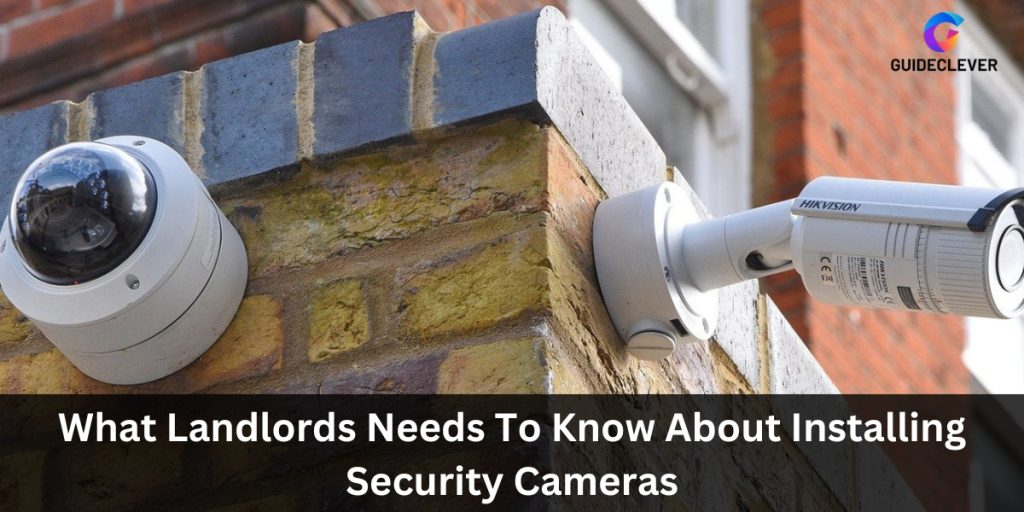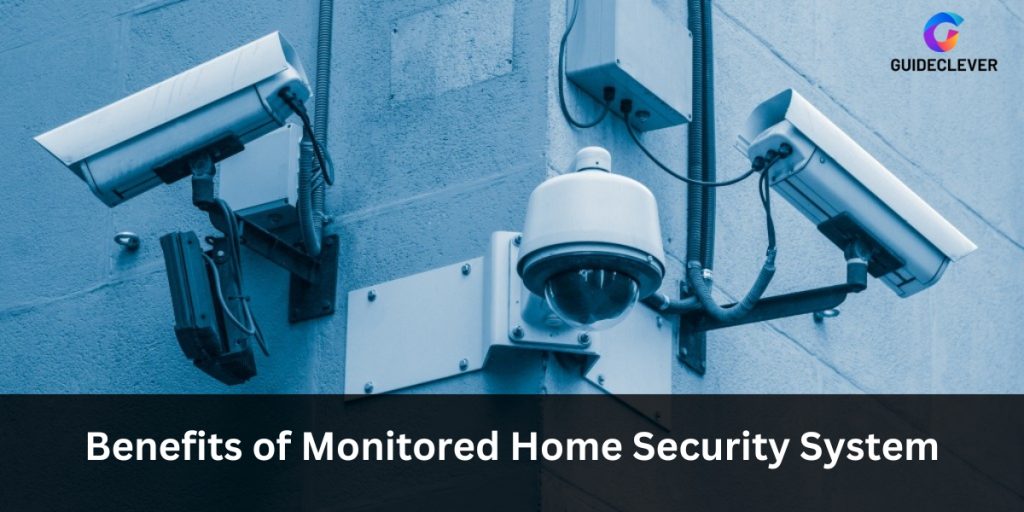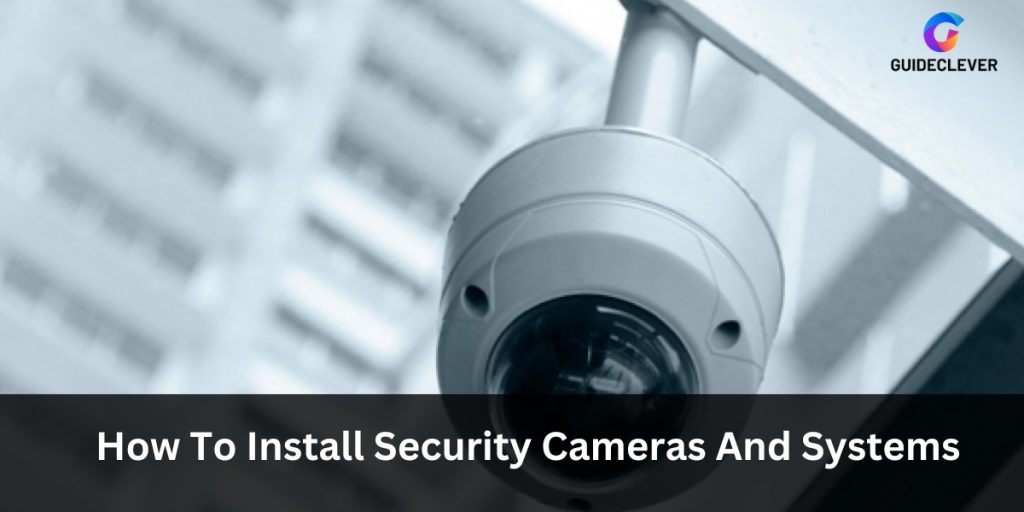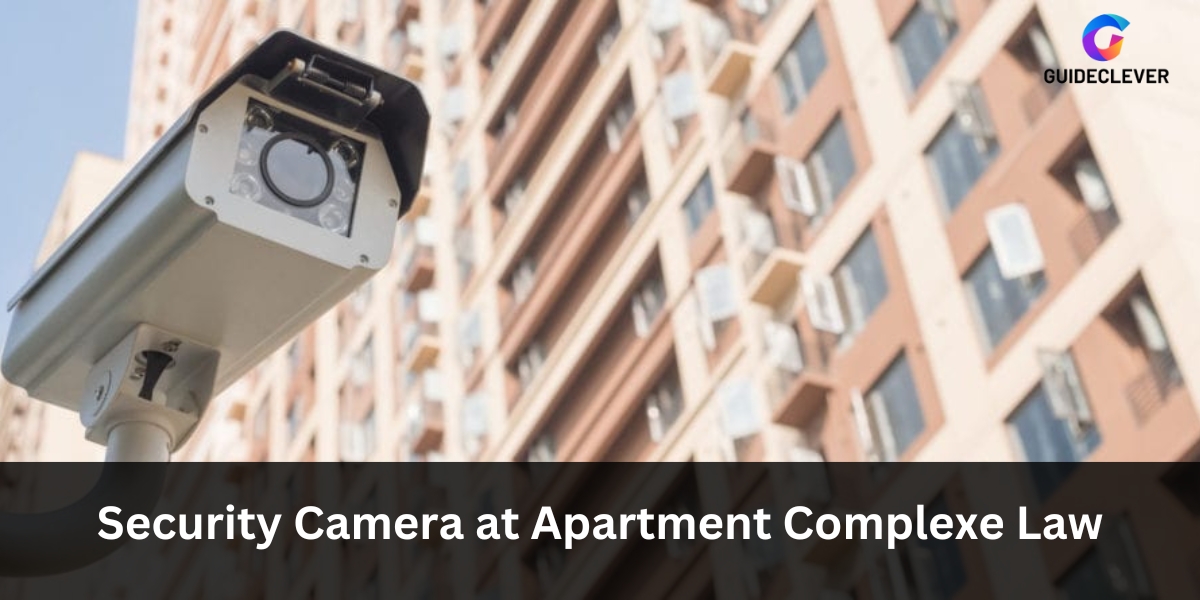Cities have many apartment complexes that provide convenient housing for individuals and families. As communities grow and connect, safety and security become more important to consider. To keep residents and property safe, apartment complexes need security cameras. The “Apartment Complexes Security Camera Law” regulates cameras in apartments.
It considers privacy, surveillance, and property protection for owners and tenants. We will explore Apartment Complexes Security Camera Law.
This law is important for property owners, tenants, and policymakers in urban areas. We will discuss its significance, implications, and considerations.
Contents
- 1 What Landlords Needs To Know About Installing Security Cameras
- 2 Apartment Security Laws for Property Owners
- 3 Apartment Security Camera Laws for Tenants
- 4 Benefits of Monitored Home Security System
- 5 Where Landlords Cannot Install a Security camera
- 6 How To Install Security Cameras And Systems
- 7 Security Camera Tips and Tricks
- 8 FAQ
- 9 Conclusion
What Landlords Needs To Know About Installing Security Cameras

Landlords can install security cameras in their rooms and apartments. It would help if you informed tenants about the security cameras. Different states and countries have different rules. It is the landlord’s responsibility to understand the systems. Watch videos properly.
For example, Cameras should not place in private areas of people. Such as bathrooms, bedrooms, or changing rooms. Landlords need to hire an attorney to fulfill their obligations before putting any camera system into place.
Understanding these laws ensures. They have properly followed landlords. They can protect both their tenant’s rights as well as their own investment.
Apartment Security Laws for Property Owners
Security is a major concern for property owners of apartment complexes and the tenants that live within them. To ensure the safety and peace of mind of all involved, some laws have been created to regulate security in these residential communities.
Security cameras should be installed at every point of entry to an apartment building, as well as any outdoor common areas. Furthermore, complex owners should follow regular maintenance schedules for locks on doors and windows, requiring tenants to submit ID for entry into entranceways and verifying the identities of visitors through a check-in system.
Finally, routine checks should be made around the grounds by management or security personnel to ensure the safety of those living on site is maintained. By adhering to these laws and regulations regarding safety, property owners are showing their commitment to providing a secure environment their tenants can trust.
Apartment Security Camera Laws for Tenants
Tenants of apartment communities also have laws that protect their privacy when it comes to security cameras. Though cameras are important for safety and security, tenants still have rights regarding the placement of these devices.
Cameras must not be placed in private areas such as bathrooms or bedrooms, nor can they be used to monitor activities outside the scope of what is necessary to maintain safety and security. Finally, if cameras are installed in common areas such as hallways or lobbies, they must be clearly marked that they are recording.
By abiding by these laws, tenants can ensure their right to privacy is maintained while still allowing landlords the security they need to protect their property and those living on it.
Benefits of Monitored Home Security System

Home security systems are an important part of keeping our homes safe. There are some benefits below:
Protection
When it comes to protecting security cameras, there are a few things that landlords and property managers should do. First, installing the cameras in an area that is well-lit and visible. This will help deter any criminals from attempting to break into the property. because Cameras See in The Darkness.
Watch Your Home with a remote
Most security cameras can monitor. You can watch your rental property from anywhere. You can see every activity with an internet connection.
Savings
Having a security camera system can help landlords and property managers save money. They can deter potential criminals from attempting to break into their rental properties. Also, landlords can stay informed of any suspicious activity with remote monitoring capabilities, without having to check.
Where Landlords Cannot Install a Security camera
It is illegal for landlords to install security cameras in private spaces. Such as a tenant’s bedroom or bathroom. These areas are considered off-limits for cameras. A landlord must not attempt to place them there. Security cameras should not be placed in communal spaces.
This place is not monitored. Such as a hallway or lobby. Also, landlords must ensure that the security system is. The install only records videos and does not record audio conversations.
How To Install Security Cameras And Systems

Installing security cameras and systems is an excellent way to enhance the safety and security of your home or business. Whether you want to deter burglars, monitor your property remotely, or simply have peace of mind, this guide will walk you through the essential steps of installing security cameras and systems.
Step 1: Plan Your System
Before diving into the installation process, take some time to plan your security camera system. Consider the following:
- Camera Placement: Identify the areas you want to monitor, such as entrances, driveways, and common areas.
- Camera Types: Choose the right type of cameras for your needs, such as indoor, outdoor, wireless, or wired cameras.
- Storage Options: Decide between local storage (DVR or NVR) or cloud storage for your footage.
- Power Source: Determine how your cameras will be powered, whether through outlets or battery-operated.
Step 2: Gather Your Tools and Equipment
Make sure you have the necessary tools and equipment on hand, including:
- Security Cameras: Purchase the cameras that suit your requirements.
- Cables and Wires: For wired systems, you’ll need cables to connect the cameras to the recording device.
- Mounting Hardware: Brackets, screws, and anchors for camera installation.
- Power Supply: Depending on your camera type, you may need power adapters or PoE (Power over Ethernet) switches.
- Drill and Screwdriver: Essential for mounting cameras and drilling holes.
- Monitor/Screen: If your system doesn’t support remote viewing, you’ll need a monitor or screen.
- Internet Connection: Ensure a stable internet connection for remote access.
Step 3: Install the Cameras
Now, let’s proceed with the installation:
- Mounting: Securely attach the cameras to your chosen locations using the mounting hardware. Ensure they are positioned for optimal coverage.
- Wiring: If your system is wired, carefully route and connect the cables to the cameras and recording device.
- Power: Connect the cameras to a power source or PoE switch.
- Configuration: Follow the manufacturer’s instructions to configure your cameras and connect them to the recording device or network.
Step 4: Set Up the Recording Device
If you’re using a DVR, NVR, or cloud-based storage:
- Connect: Link the recording device to your cameras using the provided cables.
- Power: Plug in the recording device and ensure it has a stable power supply.
- Network Setup: Configure the device for remote access, if desired.
- Storage: Set up storage options and adjust recording settings, such as motion detection.
Step 5: Test Your System
Before relying on your security system, thoroughly test it:
- Camera Alignment: Adjust camera angles and positions for the best view.
- Functionality: Ensure cameras, recording, and remote access work correctly.
- Notifications: Test motion alerts and notifications to confirm they’re functioning as expected.
Step 6: Monitor and Maintain
Once your security camera system is up and running:
- Regular Maintenance: Clean cameras and check connections periodically.
- Firmware Updates: Keep cameras and recording devices updated with the latest firmware for security enhancements.
- Privacy and Compliance: Respect local laws and neighbors’ privacy concerns regarding surveillance.
Installing security cameras and systems can be a valuable investment in your safety and peace of mind. By following this guide and conducting proper planning and installation, you'll be well on your way to enjoying the benefits of a secure and monitored environment.
Security Camera Tips and Tricks
Here’s a table with some useful “Security Camera Tips and Tricks”:
| Tip/Trick | Description |
|---|---|
| Choose the Right Camera | Select a camera with the features you need, such as resolution, night vision, and weather resistance. |
| Optimal Placement | Position cameras strategically to cover vulnerable areas and entry points. |
| Proper Lighting | Ensure adequate lighting for clear footage, especially at night. Motion-activated lights can help. |
| Secure Mounting | Securely mount cameras to prevent tampering or theft. |
| Password Protection | Set strong, unique passwords for camera access to prevent unauthorized access. |
| Firmware Updates | Regularly update camera firmware to patch vulnerabilities. |
| Cloud Storage | Consider cloud storage for secure and accessible video footage backup. |
| Motion Detection | Enable motion detection to receive alerts for suspicious activity. |
| Remote Monitoring | Use mobile apps or web interfaces for real-time monitoring from anywhere. |
| Privacy Concerns | Be mindful of privacy laws and neighbor sensitivities when positioning cameras. |
| Regular Maintenance | Clean lenses and check connections to ensure cameras function optimally. |
| Backup Power | Invest in backup power sources (e.g., UPS) to keep cameras running during outages. |
| Network Security | Secure your home network to protect camera data from hackers. |
| Legal Compliance | Familiarize yourself with local laws regarding surveillance and privacy. |
These tips and tricks can help you make the most of your security cameras and enhance the safety and security of your property.
FAQ
Can a landlord property manager install audio recording devices alongside security cameras?
No. It is illegal to record audio conversations, even with a security camera. Landlords and property managers need to understand. The law when it comes to installing security systems on their rental property. Before installing any audio, it is important to get written consent from tenants.
How Can I Set An Access Code On The Cameras?
Most security cameras can be set with an access code or password to limit who can view the footage. Depending on the camera, you may access the settings through an app or a web interface. Once you have accessed the settings, you should be able to set up an access code.
Should I Set Up Alarm Triggers?
It is important to set up alarm triggers for your security cameras. Alarm triggers allow the cameras to alert. You when certain events happen, such as motion detection or sound detection. Customize the settings of your alarms to make sure. You are always aware of any suspicious activity around your apartment complex.
Conclusion
In growing cities, laws about security cameras in apartment complexes are important. These laws ensure safety and privacy. It is not easy to balance the needs of property owners and tenants for security and privacy. The complex laws aim to find balance by setting rules for security cameras in apartments.
The rules for security cameras in apartments depend on the technology and needs. Lawmakers and housing industry professionals should prioritize privacy, data protection, and surveillance awareness.
These laws aim to make the community safer and protect people’s rights and freedoms. The law for security cameras in apartment complexes will change as society changes. We created this law to keep our communities safe and peaceful as the world changes.



6 thoughts on “Apartment Complexes Security Camera Law: Know Your Rights!”